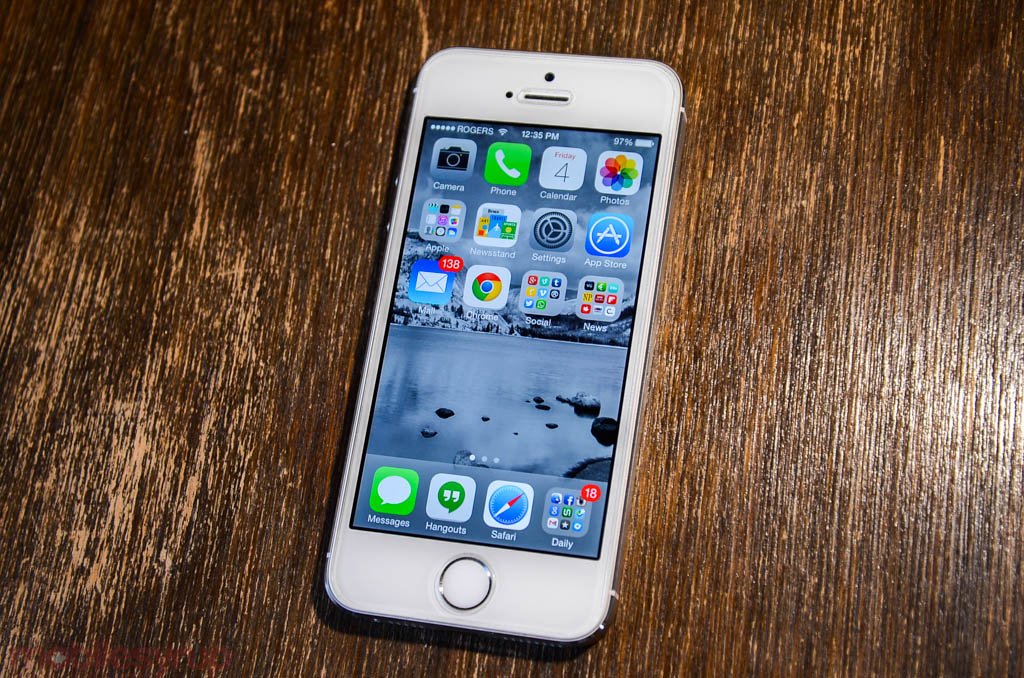
Welcome to Tête-à-Tête, a series where two of our writers converse on interesting topics in the mobile landscape — through chat. Think of it as a podcast for readers.
This week, Daniel and Douglas chat about — what else — the massive collaboration between Apple and IBM, and what implications it may have for enterprise users going forward.
Douglas Soltys: Earlier this week, Apple entered into partnership with IBM to make gobs of money. Apple will provide the hardware, while IBM will provide the security bona fides, as well as the dedicated sales team, Apple requires to make a dent in enterprise; the two companies will also team up to create over 100 enterprise apps and services for iOS.
Ignoring for a moment the realization that 30 years ago these companies were mortal enemies, and sidestepping the obvious argument of why the partnership makes sense, I ask you my dear friend Daniel this question: which company benefits more from the joint venture?
Daniel Bader: It’s difficult to say which company benefits more, just that both benefit considerably. While it’s a misnomer to dismiss Apple’s slow-but-steady progress in gaining enterprise market share, the company has yet to really make a push in this area. iOS 8 makes a concerted effort to bridge the remaining gaps in Apple’s mobile enterprise feature set, including more granular MDM controls for IT administrators and an expanded retinue of per-app data protection schemes.
Moreover, IBM has been in the mobile game for some time with its MobileFirst solution, which includes many facets of a traditional MDM structure, such as application management, integration, analytics and security, but no one really knew about it. Not only is IBM working with Apple to create a series of apps that take advantage of both companies’ strengths — Apple’s hardware and development tools, and IBM’s existing relationships with enterprise companies, along with its cloud processing capabilities — but it gets to be thrust into the spotlight, again and again, through Apple’s brand recognition and consumer edge.
The question is whether this will have an impact on existing enterprise customers either currently using other solutions such as BlackBerry Enterprise Service, or if it has potential to force companies’ hands to change their BYOD policies to allow personal iPhones and iPads on their networks.

Douglas Soltys: Agreed. One might in fact take the lack of a lopsided beneficiary as a sign of a strong deal. That said, it’s pretty clear which company this deal benefits the least. Although the leadership of John Chen has redirected the company towards a more sensible identity as an enterprise services provider, for BlackBerry, this is the worst possible news at the worst possible time.
While BlackBerry has a variety of interesting or compelling enterprise products slated for release this year, only BBM Protected is currently available. This gives the company a slight lead time on Apple and IBM, but certainly not enough to grab sizeable marketshare or completely restore confidence in BlackBerry’s ability to deliver (assuming, of course, that it can deliver).
And as you correctly noted, IBM’s investment in MobileFirst, and the 100,000 people the company is committing to the project, should allow them to catch up quickly to BlackBerry. As I said during my brief appearance on CBC’s The National, years of squandered opportunities have put BlackBerry in a race with two massive companies with the resources to completely overtake the enterprise market. If Apple and IBM can offer even a comparable level of security — maybe not enough for government adoption, but enough for 90% of all enterprises and SMBs — BlackBerry will restricted to a very small piece of the pie. It doesn’t look good for BlackBerry.

That’s my ‘it doesn’t look good’ face.
But while I agree with Queen’s University’s Ken Wong that BlackBerry isn’t the intended prey of IBM and Apple’s partnership, just a less-than-innocent bystander, I disagree with his choice of Samsung as the true target. Apple cares less about Samsung device sales than it does the proliferation of Android and Google in the enterprise.
Daniel Bader: Here’s the thing: BlackBerry is understandably concerned about both Apple and Google, since both companies, as well as Microsoft with its latest Windows Phone 8.1 release, are taking the enterprise more seriously this year. They understand that smartphone growth, especially in the high-end, has stalled, and that in order to continue proliferation of the category, these devices have to play an increasingly important role in IT managers’ purchase plans.
The same goes for Apple’s tablet strategy, which, even more than its smartphones, needs this enterprise collaboration with IBM to push the iPad into an increasing number of businesses around the world. There’s a tacit understanding that the iPad “can’t get work done,” but the fact that Apple and IBM are working together to build over 100 specialized apps for myriad verticals ensures the Air and Mini will almost immediately be more useful while in and out of the office.
This move is neither a death knell for BlackBerry nor an assumption of Apple’s inevitable victory in the enterprise. Rather, it points to the increasing importance of BYOD, MDM and the replacement of work-life balance with work-life integration.


